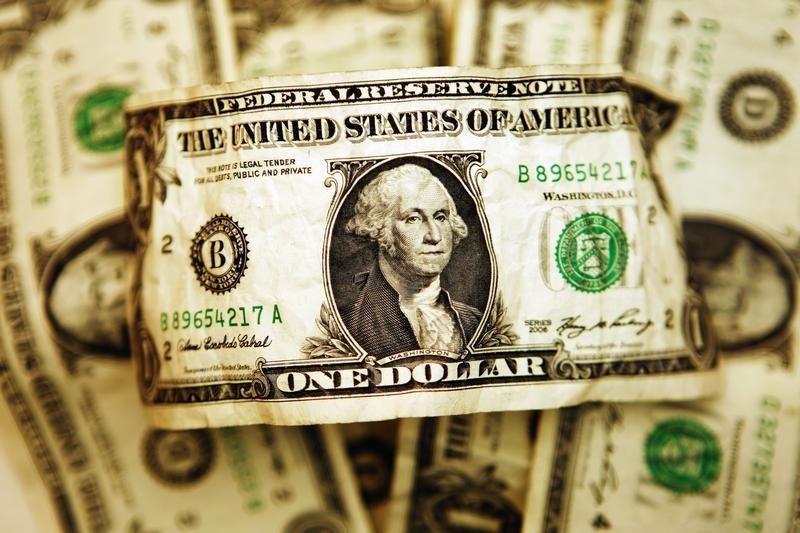Bitcoin price today: gains to $120k, near record high on U.S. regulatory cheer
By Gina Lee
Investing.com – The dollar was down on Wednesday morning in Asia, near its lowest level since early January 2021, as U.S. Federal Reserve officials reiterated that any inflation will be transitory and the Fed will maintain its current dovish monetary policy.
The U.S. Dollar Index that tracks the greenback against a basket of other currencies inched down 0.03% to 89.6 by 12:45 AM ET (4:45 AM GMT).
The USD/JPY pair inched up 0.02% to 108.78. Bank of Japan board member Hitoshi Suzuki said earlier in the day that the central bank should prevent its holdings of exchange-traded funds (ETF) from increasing as much as possible during calm periods in the market.
The AUD/USD pair rose 0.57% to 0.7794. Across the Tasman Sea, the NZD/USD pair jumped 1.11% to 0.7307. The Reserve Bank of New Zealand (RBNZ)’s policy decision, handed down earlier in the day, kept the central bank’s interest rate unchanged at 0.25%. RBNZ also said it would only scale back its stimulus measures after its inflation and employment targets are achieved.
The USD/CNY pair was down 0.23% to 6.3953. The yuan strengthened as far as 6.3925 per dollar during Tuesday’s Asian session in offshore trading, surpassing the 6.40 mark for the first time since mid-2018. The move reportedly prompted Chinese state-owned banks to buy dollars at around 6.40 yuan later during that session in order to cool the rally in the onshore yuan.
"Amid conflicting reports from Chinese officials in recent days about their attitude to the currency, our read here is that 6.40 is not a hard line in the sand, and that in the context of further downward pressure on the dollar more generally, it will be ‘allowed’ to trade lower," National Australia Bank (OTC:NABZY) strategist Ray Attrill said in a report that reiterated a forecast for 6.35 yuan per dollar by the end of June 2021.
The GBP/USD pair inched up 0.10% to 1.4165.
A slew of U.S. Federal Reserve officials, echoing the sentiments of Chairman Jerome Powell, reiterated that any inflation will be temporary and the central bank will keep its current dovish monetary policy unchanged.
"I have not seen anything yet to persuade me to change my full support of our accommodative stance," Chicago Fed President Charles Evans said in a speech on Tuesday.
"Right now, policy is in a very good place… We need to be patient," added San Francisco Fed President Mary Daly.
"The conviction of Fed officials that this year’s price pressure will be transient suggests there is no real reason to suspect any significant rowing back of monetary policy accommodations in the near-term," Rabobank strategist Jane Foley said in a note.
However, Fed Vice Chairman Richard Clarida said on Tuesday that policymakers could be ready to talk about the slowdown of asset purchases, echoing the recent minutes from the Fed’s latest meeting.
"It may well be... there will come a time in upcoming meetings we will be at the point where we can begin to discuss scaling back the pace of asset purchases… that was not the focus of the April meeting. It is going to depend on the flow of data," he added.
Investors now await data, including the U.S. Core Personal Consumption Expenditure Price Index, due to be released on Friday.
